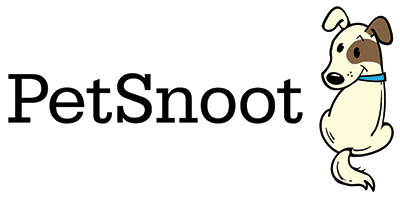Choosing the right veterinarian is one of the most important decisions you will make for your pets. It’s not always an easy decision to make. As a veterinary technician with well over 25 years of experience in the veterinary industry, I’m here to help!
What should you consider when looking at your options? The list below includes options you may not know are available to you, as well as things you may not have thought to consider. My goal is for you to feel confident and content with whichever practice you choose.
Pricing
Why is this the first thing listed? When it comes down to it, we are all curious about the price of any item or service. I’m sure you’ve heard the saying “you get what you pay for.” It goes without saying this applies to veterinary clinic pricing as well.
Realistically, we need to know the cost of some preventative services in order to plan ahead, save money, and know what to expect with yearly veterinary care. For these reasons, being knowledgeable about pricing before selecting a clinic is important, but making a decision based strictly on who is the cheapest shouldn’t be the goal. Many clinics have similar pricing, but there are reasons why clinics differ in price.
Click here to find a list of clinics in your area with preventative care price transparency.
Click here to learn more about veterinary costs and the value in veterinary visits.
Fear Free Certified
Did you know there are veterinary clinics that have a certification in a fear-free initiative? Many pets experience anxiety during their veterinary visit. Veterinary practices that are fear free certified have completed online and in-person education courses that promote methods and protocols that lead to the reduction or removal of anxiety triggers. These protocols are designed to create an experience that is rewarding and safer for all involved.
To find Fear Free Certified veterinary practices in your area, type Fear Free Certified in the search bar.
AAHA (American Animal Hospital Association) Certified
The American Animal Hospital Association (AAHA) sets the standard of excellence in veterinary medicine. In order to become AAHA certified, a veterinary practice must meet the 940 standards and 18 categories covering all areas of veterinary practice – from anesthesia and pain management to recordkeeping and client communication.
AAHA has practice consultants that visit these veterinary hospitals regularly to confirm they uphold these standards of care. AAHA also works closely with the AVMA (American Veterinary Medical Association) to develop preventive healthcare guidelines, such as vaccinations, testing for dangerous diseases, and more.
To find an AAHA certified veterinary practice in your area, type AAHA certified in the search bar.
Cat Friendly Practice (CFP)
These feline friendly practices must meet specific criteria and take extra steps to provide the best care and experience for you and your cat. This program is awarded by the American Association of Feline Practitioners and is designed to elevate care and reduce stress for cats during their veterinary visit.
For example, many Cat Friendly Practices have a separate entrance and/or waiting area for felines as well as staff training on feline-friendly handling.
To find cat friendly veterinary practice in your area, type cat friendly practice in the search bar.
Independently owned vs. Corporate owned
Did you know that out of the 30,000 veterinary practices in the US, at least 10 percent of general practices and 40 to 50 percent of specialty practices are owned by corporations? Even more surprisingly, two of the largest veterinary practice chains, VCA (Veterinary Clinics of America) and Banfield, are owned by Mars, Inc. Yes, the same company that owns brands such as Uncle Ben’s rice and Twix candy bars, also owns a large percentage of veterinary practices.
Is this a bad thing? Not necessarily. Veterinarians in corporate practice don’t have to deal with management, staffing issues, or business management, letting them focus solely on patient care. Many corporate owned veterinary practices have board certified surgeons and equipment which allows them to offer more invasive surgeries and procedures.
Independently owned veterinary practices have more flexibility with treatment options and aren’t restricted in the ability to customize their approach in treating each patient. While corporate owned practices must conform to standards of care set by the corporate headquarters, independently owned practices have flexibility with treatment options and freedom to customize treatment for each individual patient.
The primary goal of independently owned practices is to develop a relationship with the pet owner and to deliver the care they need. Without the financial resources of a big corporation, a locally owned independent practice can use all of the support they can get.
Additional things to consider when finding the right veterinarian for your pet family are listed below.
- How many veterinarians are in the practice? Having multiple veterinarians on staff may be beneficial in case you need to schedule an appointment unexpectedly due to sudden illness or emergency. If there is more than one veterinarian on duty, this may allow a bit more flexibility in scheduling.
- How many years of experience does the veterinarian have? Many clinics have a staff bio section on their website that gives details on experience, continuing education, and special interests for each veterinarian.
- Does the practice offer behavior training? Some veterinary practices host behavior training classes at their facility, which may be beneficial for pet owners with puppies that need training and socialization. If you have a pet with specific behavior issues you may want to search for a clinic with a veterinary behaviorist.
- Does the practice have modern equipment and technology? Digital x-ray, ultrasound, laser therapy, and in house laboratory equipment are a few examples of modern equipment used to formulate a proper diagnosis.
- What services are available? Some veterinary clinics strictly practice preventative care such as wellness exams, vaccinations, spays and neuters, and maybe teeth cleanings. Other practices offer more extensive surgical procedures such as orthopedic surgery, stem cell therapy, acupuncture, and more.
- Do they have an extensive in house pharmacy and do they offer online options for medication refills and prescription diets? If you have a pet on several medications, it may be easier to order through a veterinary practice’s online pharmacy and have them shipped directly to your home. It is also beneficial to have a veterinarian with an extensive in house pharmacy so you can leave your visit with any prescribed meds in hand.
- Do they offer boarding or grooming services? Many pet owners are more comfortable leaving their pet for boarding or grooming in a facility that has a veterinarian on site. For example, if you have a diabetic pet, it may be beneficial to board them at a veterinary facility with trained staff that can monitor glucose levels and administer insulin as needed.
- Do they have hours of availability that fit your schedule? Some clinics offer walk in hours while others operate by appointment only. Not all clinics operate every weekday and many have limited hours on the weekends. There are some veterinary clinics that offer the option to drop your pet off for their appointment in the morning and pick them up later that day. Be sure to check their schedule for hours during the week, on the weekends, and their appointment policies.
- Do they see exotics and/or pocket pets? Not all veterinarians have the expertise, equipment, and medications needed to treat exotics and pocket pets. Each species is unique and requires specialized care and handling. Keep in mind, some veterinarians will treat guinea pigs, hamsters, gerbils, and rabbits, but may not be equipped to treat reptiles or birds.
- Does your pet have a specific condition that needs continual treatment? Some veterinarians specialize in specific types of medicine such as geriatrics, allergies, dentistry, surgery, and more. Just like human doctors, there are veterinarians that are passionate about a specialty, have more experience treating these types of cases, and continually attend educational classes to keep up to date with the latest treatments for each specialty. The PetSnoot Veterinary Resources page has made it easy for you to search for veterinarians with special interests. For example, type dermatology or skin conditions in the search bar to find veterinarians that specialize in dermatology.
Thanks to the availability of high quality veterinary care, preventive care, and pet owner’s careful monitoring, pets are living longer, healthier lives. Finding the right veterinary team for you and your pet family is sometimes easier said than done. With so many factors to consider, it’s important to see the value in the services offered and choose a clinic that provides the best care at a price you are comfortable with.


Recent Blog Comments